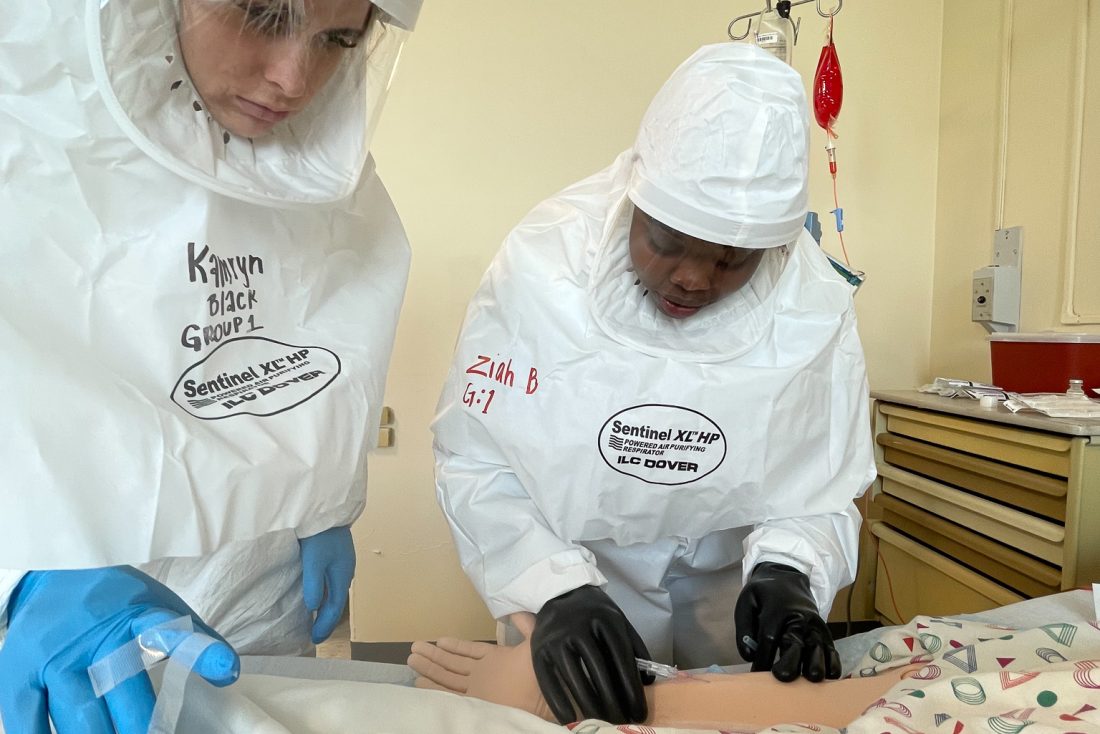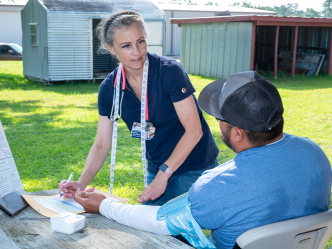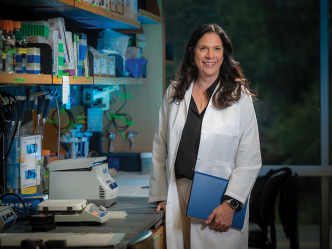Stories this week include: A bestselling author will be on campus, nursing students get FEMA training for the first time in two years and cancer research looks at precision treatments.
Bestselling author hosts two-part speaking event
New York Times bestselling author Nic Stone will hold two discussions at 3 p.m. and 4 p.m. Tuesday, May 3 at Maxwell Theatre. The event is free and open to the public. Stone’s first discussion, “Being Human,” dives into the importance of diversity and inclusivity in literature. The second discussion, “Conversations About Teaching Dangerous Books,” is geared toward educators, especially with recent conversations in the Augusta area and around the nation on the controversy surrounding some books.
“It’s a unique opportunity to engage with an author who is writing about themes relevant to today’s world,” said Dr. Rebecca Harper, faculty member at the Augusta University Literacy Center.
College of Nursing students receive FEMA training
For the first time since before the COVID-19 pandemic, Bachelor of Science in Nursing students had a chance to participate in Federal Emergency Management Agency training. Students underwent two days of training at the Center for Domestic Preparedness in Anniston, Alabama. Students learned about patient triage, patient assessment, signs and symptoms of exposure, patient decontamination and the use of personal protective equipment.
“With the recent mass casualty events, working through the simulation wearing hazmat suits gave me a good understanding of response and triage,” student Rachel Thompson said. “It was one of the coolest things I’ve ever done. I feel like I now will be a great asset to any emergency care team”
Gene mutations that contribute to head and neck cancer also provide “precision” treatment targets
About one-fifth of often deadly head and neck cancers harbor genetic mutations in a pathway that is key to normal cell growth, and scientists report those mutations, which enable abnormal cancer cell growth, can also make the cancer vulnerable. Keys to targeting that vulnerability include individualized genomic analysis to identify a patient’s specific mutation, and finding the drugs that directly target it.
“There are secrets that make the cancer vulnerable,” said Dr. Vivian Wai Yan Lui, molecular pharmacologist and translational scientist at the Georgia Cancer Center and Medical College of Georgia. “When cancer cells have an important gene mutation that they are activating or that cancer cells are addicted to for survival, then when you hit the signaling pathway, the cancer cells die or get really well controlled.”
Interview opportunities are available for these stories. Call 706-993-6719 to schedule an interview. Check out the Augusta University Expert Center to view our list of experts who can help with story ideas.
 Augusta University
Augusta University




